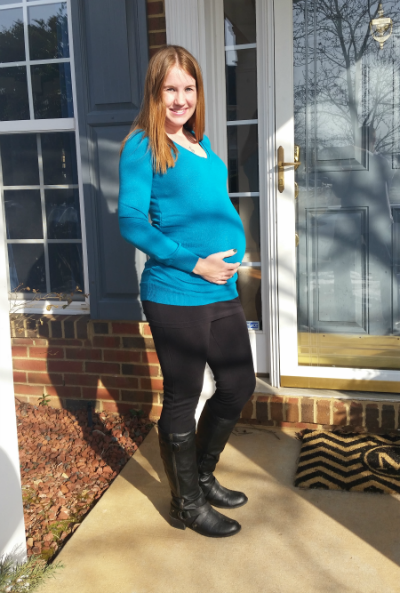I received that dreaded call on Wednesday that I failed my one hour glucose screening. This test, The Glucose Challenge Screening, is a preliminary screening test
performed between 26-28 weeks that checks for potential gestational diabetes. I had to drink a sweet liquid (50 grams of glucola) in five minutes or less and then have my blood drawn one hour later.
I had no problem passing the test with my first pregnancy and pretty much figured that is how things would go this time around. I even indulged in this yummy caramel drizzled praline ice cream the night before. Something I actually never do. I usually go for the cheeseburger and fries and stay away from sweets. Fingers crossed this dessert and unthought out decision is the cause for my glucose fail.
If a woman tests positive during this
screening test, the second test, called the Glucose Tolerance Test, is performed.This test requires you drink 100 grams of glucola.
With the one hour screening I felt jittery and a little nauseous. The feeling passed in a couple of hours and I didn't think much of it. Now that it is recommended that I drink double the amount of glucola that made me feel bad enough to wonder if I was hurting my baby, I decided to do some research on the sugary drink.
One of the first articles I stumbled across,
Think Before You Drink: A Closer Look At Glucola, listed common ingredients found in Glucola.
One of the most concerning is Brominated Vegetable Oil (BVO). This product is also approved as a flame retardant and is banned in Europe and Japan. According to Aviva Romm,
a midwife and MD who specializes in the health and wellness of pregnant
mamas, “Research has found that brominated flame retardants build up in
the body and breast milk. BVO leaves residues that accumulate in body
fat, the brain, the liver, and other organs. BVO has been associated with heart lesions, fatty changes in the
liver, and impaired growth and behavioral development, and both animal
and human studies have linked BVO to neurological problems, fertility
problems, and changes in thyroid hormones.
Another issue I came across is the reliability of the gestational diabetes test. Many people think that the test gives women a definite answer to whether or not they have gestational diabetes. That is not true. In fact studies have concluded that for every one hundred women tested with gestational diabetes, only seventy-six are identified. Twenty-four percent of women who do not have gestational diabetes will actually test positive. I do not want to become one of those false positives that are considered high risk.
My initial test was not given to me until the middle of my twenty-seventh week, possibly the middle of my twenty-eighth week according to my dating and one Doctor's opinion. Several sites including
a PubMed article stated that one could fail a test in week twenty-eight that you would have passed had you taken it in week twenty four. This is because “blood glucose values rise as pregnancy advances, but no adjustments are made for this.”
Because of the ingredients in glucola, potential harm to me and my unborn baby, and the lack of reliability in the test, I have decided to deny the Glucose Tolerance Test. If I have another child in the future, I will probably deny the Glucose Challenge Screening as well. We all have the right to refuse the test if we choose to.
I cancelled my three hour test and was immediately sent to the nurse's line. They wanted me to talk with a doctor or nurse and I did. During the twenty minute conversation I heard a lot of "I highly recommended the three hour test," from the nurse practitioner. After my explanation, I finally got her "approval" to do an alternate test that surprisingly is simple and "reliable." The nurse even said she was impressed with all my knowledge. Funny how she did a complete 360 in twenty minutes time.
This morning I went in for a Hemoglobin A1C. All I had to do is fast after midnight the night prior and get one vial of blood taken. Easy peasy. The test determines whether you already had undetectable diabetes before even becoming pregnant, and a level of 5.45% is associated with gestational diabetes. So now I wait and hope for a negative gestational diabetes result.























